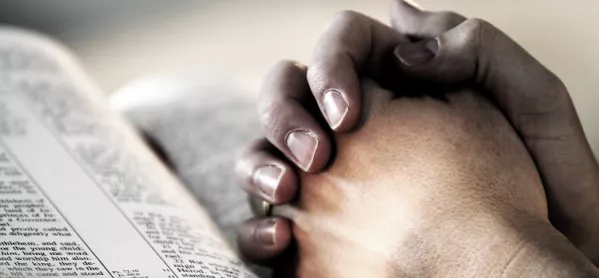- Home
- CoE schools face calls to end faith-based admissions
CoE schools face calls to end faith-based admissions

The Church of England is facing calls to remove all faith-based selection of pupils from school admissions, in a report published today.
Former Labour education secretary Charles Clarke and academic Professor Linda Woodhead have said that the country needs to have fewer schools that select pupils on the basis of religion.
The pair have released an updated version of a report on religion in schools, which they first wrote three years ago.
The new report includes a specific call for the Church of England to phase out all religious selection in admissions.
The authors say: “We remain of the view that the country needs to move strongly in the direction of reducing the number of schools which include faith as a criterion for admission.
‘The effect on society and integration’
“It is important to emphasise that this is not a criticism of faith schools as such, but simply an observation that where admission on the basis of faith is taking place care is needed to look at the overall effect on society and integration.
“There is no reason at all that faith schools cannot continue to maintain a distinctive faith ethos and values - this does not depend on selection criteria.
“It would, for example, be highly beneficial if the thinking of many of the Church of England’s leaders was now put into effect, for example by adopting a strategy of phasing out all selection in their schools on the basis of faith, perhaps over a number of years.”
The report comes amid controversy over education secretary Damian Hinds’ decision to retain a 50 per cent faith cap on new free schools but provide new funding to allow new voluntary aided schools to open, which can select all their pupils on the basis of their faith.
The new Clarke-Woodhead report also raises concern that many schools consider the good teaching of religious education (RE) to be an “irksome appendage” and since 2015 a significant and growing number of secondary schools have stopped providing it for all pupils.
RE ‘at risk of decline’
The authors say that longstanding inaction by government to reform the “outdated” legislative framework around RE and collective worship is putting RE at risk of a spiral of decline.
The report recommends pupils at all schools have a “minimum entitlement to a broad and balanced RE that is nationally and chiefly determined by professional RE educators”.
It also recommends that RE instead be called “religion, beliefs and values” to better reflect what the authors say most schools already teach.
The Catholic Church has criticised the proposals for RE.
Right Reverend Marcus Stock, Bishop of Leeds and lead bishop for RE said: ” The recommendations in the report are unacceptable for two reasons. Firstly, that the State can impose a national RE curriculum, which would dictate what the Church is required to teach in Catholic schools.
Secondly, the curriculum they suggest contains no theological content, which is at the core of Catholic RE.”
The Clarke Woodhead paper also says that current laws around compulsory daily worship in schools are “effectively unenforced and probably unenforceable”.
However, the authors have pulled back from a recommendation made in 2015 that the current requirement on schools for an act of collective worship be abolished.
Instead, they now suggest that the guidance for schools be updated to say that: “All pupils in attendance at maintained schools and academies shall take part in a regular assembly or act of collective worship in keeping with the values and ethos of the school and reflecting the diversity and character of the school community.”
Humanists ‘disappointed’
Humanist campaigners have reacted with frustration to the report.
Humanist UK chief executive Andrew Copson said: “We welcome, of course, the recommendation that RE be changed to ‘religions, beliefs, and values’, that non-religious worldviews be included in it, and that all schools should adhere to a curriculum set nationally by an independent, impartial body.
“However, far too many concessions are made to vested interests of religious organisations for this to be a report we can be enthusiastic about.
“It is particularly disappointing, for instance, to see Charles Clarke and Linda Woodhead row back on their previous recommendation that religious worship no longer be required in schools.”
Keep reading for just £1 per month
You've reached your limit of free articles this month. Subscribe for £1 per month for three months and get:
- Unlimited access to all Tes magazine content
- Exclusive subscriber-only stories
- Award-winning email newsletters



